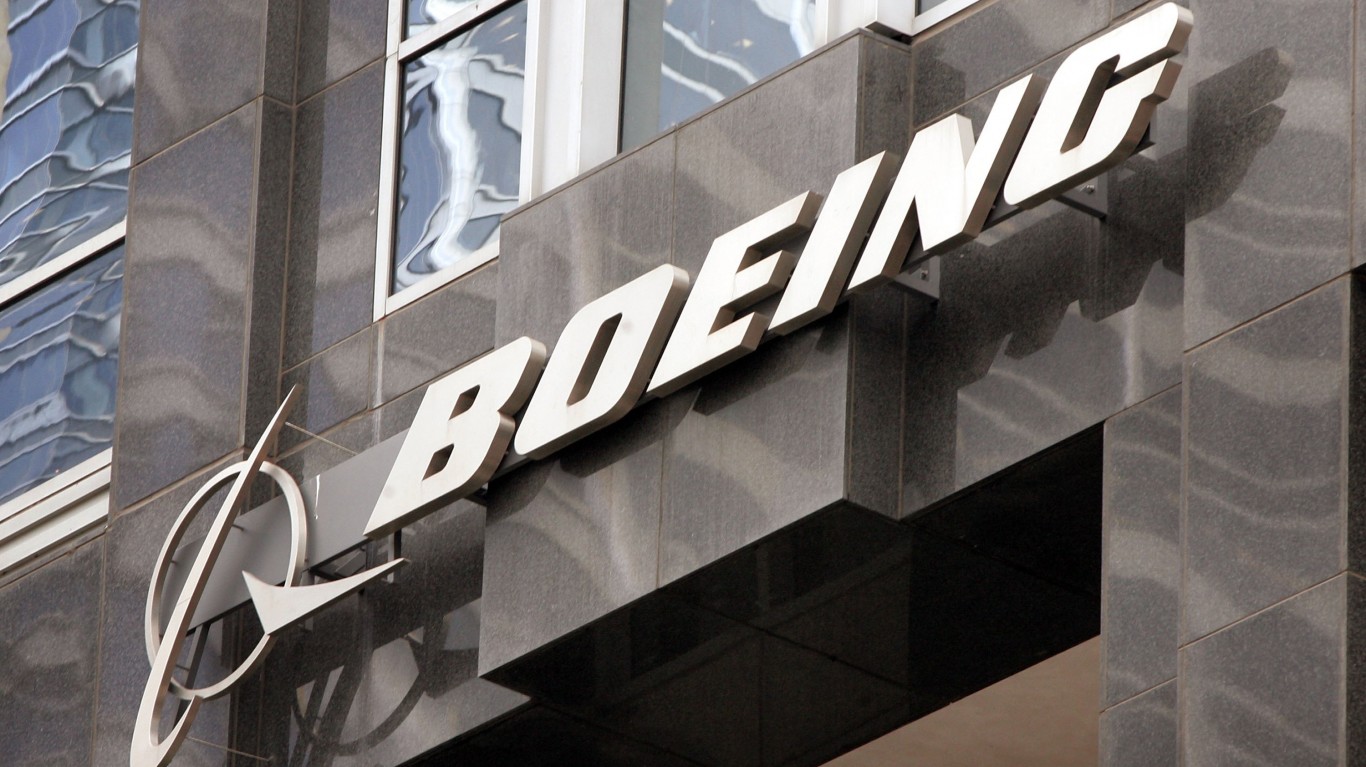
Boeing Co. (NYSE: BA) reported second-quarter 2019 results before markets opened Wednesday. The aerospace company posted an adjusted diluted earnings loss of $5.82 on revenues of $15.75 billion. In the same period a year ago, the company reported earnings per share (EPS) of $3.33 per share on revenues of $24.26 billion. Second-quarter results also compare to consensus estimates for EPS of $1.87 and $18.55 billion in revenues.
The company’s net loss totaled $2.94 billion in the latest quarter, compared with a profit of $2.2 billion in the second quarter of last year.
Last week, Boeing announced that it would take a pretax charge of $5.6 billion in the second quarter to provide for a reserve to meet customer claims related to the grounding of the company’s 737 Max, so poor quarterly performance was expected. Perhaps just not this poor. The pretax charge and lower delivery rate reduced revenue by $5.6 billion and earnings by $8.74 a share.
Second-quarter adjusted operating loss was reported at a negative $3.75 billion. In the year-ago quarter, profit totaled $2.39 billion. Operating cash flow fell from $4.68 billion in the year-ago quarter to negative $590 million, while free cash flow in the second quarter of 2018 was $4.3 billion compared with a negative $1.01 billion last quarter.
The company’s debt climbed from $12.6 billion at the end of the 2019 first quarter to $17.3 billion at the end of June. Cash on hand rose from $6.8 billion to $9.2 billion in the same period thanks to the new debt. On Monday, Moody’s lowered its outlook for Boeing debt to negative with a rather caustic comment: “The crashes [of two 737 Max aircraft] and grounding have widened a lens on Boeing’s corporate governance and culture.”
Contrary to some expectations, Boeing did not revise its outlook for the year, instead choosing to repeat its previous statement: “The previously issued 2019 financial guidance does not reflect 737 MAX impacts. Due to the uncertainty of the timing and conditions surrounding return to service of the 737 MAX fleet, new guidance will be issued at a future date.”
CEO Dennis Muilenburg said:
This is a defining moment for Boeing and we remain focused on our enduring values of safety, quality, and integrity in all that we do, as we work to safely return the 737 MAX to service. During these challenging times, teams across our enterprise continue to perform at a high level while delivering on commitments and capturing new opportunities driven by strong, long-term fundamentals.
Boeing also noted that even though it continues to target late 2020 for first deliveries of its new 777X dual-aisle passenger jet, “there is significant risk to this schedule given engine challenges, which are delaying first flight until early 2020.” Boeing should also count on stricter reviews from civil aviation authorities following the 737 Max disasters.
The company’s defense, space and security segment reported revenues of $6.61 billion, up 8% year over year with profits up 159% to $975 million. Boeing’s global services segment posted revenues of $4.54 billion, a jump of 11%, with profit rising 14% to $687 million.
Analysts have forecast third-quarter EPS of $2.20 and revenues of $20.55 billion. For the full year, current estimates call for EPS of $13.11 and revenues of $91.73 billion. These almost certainly will be revised downward.
Boeing’s deferred production costs on the 787 program fell to $20.97 billion, down by $1.06 billion sequentially. Tooling and other non-recurring costs for the program also declined, from $2.53 billion at the end of the first quarter to $2.35 billion.
The company’s backlog of commercial jets now stands at over 5,500 airplanes valued at $390 billion at contract (not list) prices. The value of the backlog slipped by $9 billion sequentially.
The big unknown for Boeing is when the 737 Max will be allowed to fly again. Most recent estimates put the date late in the fourth quarter. Until then, the company will be negotiating compensation with its customers, most likely in the form of discounts on future deliveries. More bad news could be on the way for the current quarter.
Boeing’s shares traded down about 1.3% in early trading to $368.21, in a 52-week range of $292.47 to $446.01. The consensus price target as of last night was $413.57.
Get Ready To Retire (Sponsored)
Start by taking a quick retirement quiz from SmartAsset that will match you with up to 3 financial advisors that serve your area and beyond in 5 minutes, or less.
Each advisor has been vetted by SmartAsset and is held to a fiduciary standard to act in your best interests.
Here’s how it works:
1. Answer SmartAsset advisor match quiz
2. Review your pre-screened matches at your leisure. Check out the advisors’ profiles.
3. Speak with advisors at no cost to you. Have an introductory call on the phone or introduction in person and choose whom to work with in the future
Thank you for reading! Have some feedback for us?
Contact the 24/7 Wall St. editorial team.
